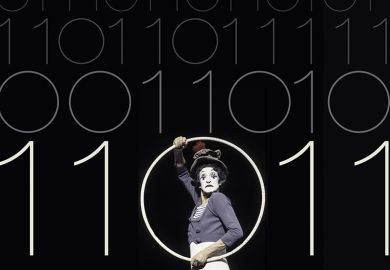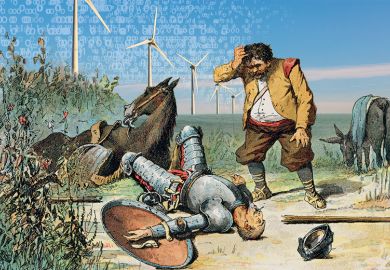Given the British theatre-going public's almost insatiable appetite for the plays of Ibsen, a new biography of the dramatist is bound to be welcome, especially since the only other biography, Michael Meyer's Henrik Ibsen: A Biography is now over 20 years old, and is in any case out of print. With its 900 pages even in the abridged paperback edition, Meyer's biography covered every detail of Ibsen's career as a dramatist. Robert Ferguson's volume is slimmer, a mere 466 pages, for he has cut away everything that does not contribute to his aim, which, he says, is "to look more closely at the man behind the reputation". He has also wanted to show how large an autobiographical base there is to nearly all of Ibsen's plays. As he writes fluently, the book is a good read for all who are interested in understanding art in terms of autobiography.
There are problems, and these have to do with the fact that Ferguson says nothing about the artistic chemistry by which Ibsen transmutes autobiography into some of the major dramas in the western canon. But then readers should be warned that Ferguson does not see Ibsen as one of the great dramatists of the western cultural tradition. For him, the high points in Ibsen's career are all plays from the 1860s: Love's Comedy, The Pretenders, and Peer Gynt. It is as if, having taken a closer look at Ibsen and discovered that he was not particularly likable, the plays become as limited as Ibsen himself sometimes was. Ibsen was a very private person; the older he grew the more he lived in and for his work and cultivated the persona of the world-famous dramatist, Dr Henrik Ibsen.
This obviously makes him fascinating to the would-be biographer who believes it must be possible to find the person under the persona. What Ferguson finds is someone who was so self-disciplined that he is almost an emotional cripple, and who as an adult felt so traumatised by his childhood and youth that he was unable to visit his family and the town of his birth. As a husband and father he could only express the love he felt for his wife and son as concern for their safety whenever he was parted from them. Friends he regarded as an "expensive luxury", so that those whom he did not drop, because he felt they had offended him, he kept at arm's length.
In the preface, Ferguson also indicates his interest in Ibsen's personal attitudes and ideas as expressed in his life and letters. He believes that "the popular definition of Ibsen as a liberal humanist is misleading in its simplicity and obscures several paradoxes". Among the paradoxes he highlights are the fact that though in principle a republican, Ibsen was in practice a monarchist, not least because the monarchy could bestow on him the honours he craved, and that though in spirit a radical to the point of being an anarchist willing to torpedo the ark, in terms of practical, real-life politics he was antidemocratic. These differences between Ibsen the writer and Ibsen the man are probably true, but only confirm that art and life are two different categories. In 1833, when Ibsen was five, his father's business collapsed, and in 1846 when Ibsen was working as an apothecary's apprentice in Grimstad he fathered an illegitimate child. He never spoke of his son nor tried to contact him.
According to Ferguson, "it is as though Elsie Sophie Birkedalen and her child never existed". Instead "the secret went inside him, intensifying his already secretive nature". From these twin events Ferguson traces consequences both for Ibsen's life and his art. Thus in life he sees Ibsen's obsession with medals and honours from the 1870s on as an expression of his "deeply ambiguous attitude towards bourgeois society. On the one hand he was still determined to exact revenge upon it for the twin humiliations of his childhood (family ruin) and adolescence (Elsie Sophie); on the other he was firmly determined to be accepted as one of its most respectable members." With regard to Ibsen's art, he believes that the events led to "that obsession with guilt, shame and Nemesis which is the chief characteristic of his art".
As mentioned in the first paragraph, Ferguson demonstrates a close relation between incidents and people in Ibsen's own life and events and characters in his dramas. Sometimes this may be rather crude and superficial and sometimes more subtle. An example of the cruder type of relationship is his view that the portrayal of Pastor Manders in Ghosts was largely motivated by Ibsen's desire to take revenge on the church and church bureaucracy "for their intransigence in obstructing his son's education". This ignores the fact that attacks on the state church and its clergy were the stock-in-trade of all the major writers of the Modern Breakthrough in Scandinavia, because they saw the clergy as opponents of democracy and scientific thought.
More subtle is his suggestion that Gregers Werle in The Wild Duck is not a reworking of Brand but of Adjunkt R?rlund (in The Pillars of Society), Torvald Heimer (in A Doll's House) and Pastor Manders (in Ghosts), "little men, impossible to admire, whose attachment to their ideas seems rooted in some deep psychological problem rather than in personal conviction. Part of Ibsen himself may be reflected in these types; the craven, law-abiding Ibsen, terrified to transgress, abasing himself in letters to kings and minor aristocrats, deeply touched by self-hatred at his own cravenness, fervently drowning this self-hatred in a clamouring demand to be recognised as right and righteous". This is a fascinating analysis, but it also enables one to see why Ferguson does not like his subject. The difficulty is that he does not quite approve of the opposite of the R?rlund-Manders-Gregers character either, the Noras and Mrs Alvings of this world who stand for "freedom and the right to be human, the right to do the wrong thing". Discussing Nora's leaving at the end of the play, Ferguson argues that "perhaps Ibsen needed Nora to leave I for in the autobiographical half-light which glows faintly beneath everything he wrote, her story is also his: that of someone prepared to sacrifice the children, defenceless and precious, for the goal of self-realisation". This he sees as being too close for comfort to the "dangerous edge of the gospel of self-realisation". In fact Ferguson has a lot of sympathy, and he believes Ibsen too has, for the Thea Elvsteds in life "who lead lives of only partial self-realisation".
Ferguson says much that is positive about Ibsen's middle and late plays. The Wild Duck is "the most human, charming, and humourous of all Ibsen's plays", and contains "the best and most natural dialogue he wrote", but not until he reaches Hedda Gabler can he say "she was his greatest creation since Brand, Peer Gynt and Jarl Skule, and her play Ibsen's finest since the great works of his thirties". Surprisingly to many perhaps, John Gabriel Borkman finds favour in his eyes, "Ibsen's first main male character since Julian whom it is possible to like, and this is largely because lbsen allows him to be complex." He even believes that "as an epilogue to the life and works, John Gabriel Borkman needed no artistic addition", but that Ibsen wrote When We Dead Awaken as "an apology" and "pained tribute" to his wife, Suzannah. Perhaps because Ferguson sees it as an unnecessary addendum he finds all sorts of faults with it, such as that "the drama is too private".
At the end of the book one is left with one question, and that is why so few of Ibsen's mature plays win Ferguson's unqualified admiration. He speaks admiringly of much, and by comparison many of his negative comments seem quibbling. Is it that having looked too closely at Ibsen the man, and having seen the degree of autobiography in the plays, he cannot see how the work of art transcends the man? Or does he disapprove of Ibsen the man so much that he begrudges him his greatness as a dramatist? Only towards the end of the book does Ferguson's disapproval seem tinged with any kind of compassion for a man who was so repressed that he could only express himself in his work.
Marie J. Wells is lecturer in Norwegian, University College London.
Henrik Ibsen: A New Biography
Author - Robert Ferguson
ISBN - 1 86066 078 9
Publisher - Richard Cohen
Price - £25.00
Pages - 466
Register to continue
Why register?
- Registration is free and only takes a moment
- Once registered, you can read 3 articles a month
- Sign up for our newsletter
Subscribe
Or subscribe for unlimited access to:
- Unlimited access to news, views, insights & reviews
- Digital editions
- Digital access to THE’s university and college rankings analysis
Already registered or a current subscriber? Login



